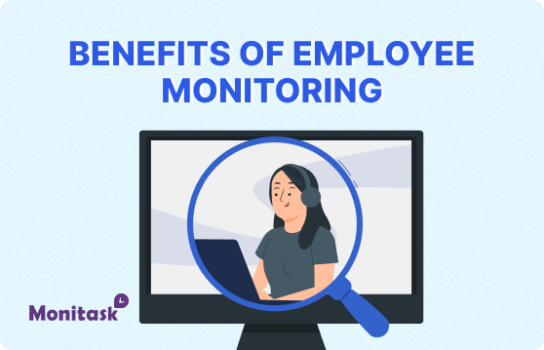How to Build Intellectual Courage at Work

Intellectual courage is the ability to challenge and question established beliefs, ideas, and practices, even in the face of potential risk or criticism. It involves being open-minded, curious, and willing to take intellectual risks. In the workplace, intellectual courage can lead to innovative solutions, improved problem-solving skills, and personal and professional growth.
In today’s constantly evolving work environment, having intellectual courage is crucial for success. It allows individuals to challenge the status quo, offer new ideas, and think critically, leading to positive changes and growth within the organization.
So, how can you build intellectual courage at work?
Having intellectual courage at work can bring many benefits, including:
Overcoming challenges to building intellectual courage can be difficult, but here are some tips to help:
Get more out of your business
Get the best employee engagement content every week via mailing list

What Is Intellectual Courage?
Intellectual courage is the willingness to challenge established beliefs, question assumptions, and explore new ideas in the workplace. It requires individuals to have an open mind, be curious, and take risks. By embracing intellectual courage, individuals are encouraged to speak up, share their thoughts, and engage in constructive debates. This leads to the cultivation of diverse perspectives and the development of innovative solutions. Intellectual courage also fosters a culture of learning and growth, where critical thinking is encouraged and different possibilities are explored. By valuing intellectual courage, organizations can create an environment that promotes creativity, collaboration, and continuous improvement.
Why Is Intellectual Courage Important in the Workplace?
Intellectual courage is crucial in the workplace because it fosters innovation, encourages critical thinking, and promotes growth and learning. By challenging conventional wisdom and expressing new ideas, employees can drive positive change and enhance productivity. Intellectual courage is also essential in creating an environment where diverse perspectives are valued, leading to more effective problem-solving and decision-making. When individuals feel empowered to speak up and share their thoughts, it cultivates a culture of openness, creativity, and collaboration. In fact, a recent study has shown that companies that prioritize intellectual courage have higher levels of employee engagement and overall success.
Here’s a true story to illustrate the importance of intellectual courage in the workplace:
During a company meeting, a junior employee had the courage to speak up with a bold idea to revamp the company’s marketing strategy. While the idea was initially met with skepticism, the employee’s conviction and intellectual courage convinced the team to consider it. The result was a successful campaign that increased brand awareness and boosted sales. This example clearly demonstrates how intellectual courage can lead to positive outcomes and highlights the significance of fostering a culture that encourages and values diverse perspectives.

How Can You Build Intellectual Courage at Work?
In today’s fast-paced and competitive work environment, intellectual courage is a crucial skill to possess. It involves the ability to challenge assumptions and think critically in order to find innovative solutions and make informed decisions. So, how can you cultivate this valuable trait? In this section, we will discuss seven practical ways to build intellectual courage at work. From challenging your assumptions to being open to feedback, we will explore the various techniques that can help you become a more intellectually courageous individual in the workplace.
1. Challenge Your Assumptions
Challenging assumptions is a crucial aspect of developing intellectual courage in the workplace. To achieve this, here are some steps you can follow:
By challenging assumptions, you can foster a culture of intellectual courage that promotes innovation, improves problem-solving skills, builds resilience, and enhances personal and professional growth. Overcoming challenges to developing intellectual courage involves recognizing and addressing fear, surrounding yourself with supportive individuals, practicing self-reflection, and continuously learning and growing.
2. Seek Out Different Perspectives
Seeking out different perspectives is crucial for building intellectual courage in the workplace. It helps to foster creativity, innovation, and better decision-making. Here are some steps to actively seek out different perspectives:
In 2008, Apple launched the App Store, revolutionizing the way we use smartphones. Steve Jobs’s decision to open up the platform to third-party developers was influenced by actively seeking out different perspectives from his team, leading to the creation of countless innovative apps that transformed industries and changed how we live our lives today.
3. Practice Active Listening
Practicing active listening is crucial for building intellectual courage at work. Here are steps to improve active listening skills:
Pro-tip: Practice Active Listening not only in formal meetings but also in day-to-day conversations to enhance communication and build stronger relationships with colleagues.
4. Embrace Failure and Mistakes
Embracing failure and mistakes is an essential aspect of building intellectual courage in the workplace. It not only allows for personal and professional growth but also fosters a culture of continuous learning.
Here are the steps to embrace failure and mistakes:
Fact: Embracing failure and mistakes can lead to increased creativity and innovation in problem-solving.
Speaking up and sharing your ideas is a crucial aspect of fostering intellectual courage in the workplace. It promotes creativity, collaboration, and growth within the organization.
To effectively speak up and share your ideas, follow these steps:
Fact: Studies have shown that teams that promote and embrace idea sharing experience higher levels of innovation and productivity.
6. Take Calculated Risks
Taking calculated risks is a crucial aspect of developing intellectual courage in the workplace. Here are practical steps to incorporate this mindset:
A real-life example of taking calculated risks is when a software company made the decision to invest in a new technology that held potential, despite the inherent risks. By carefully assessing the benefits and developing a strategic plan, they successfully implemented the new technology, gaining a competitive advantage in the market.
7. Be Open to Feedback
Being open to feedback is crucial for building intellectual courage in the workplace. Here are some steps to help you cultivate this trait:

What Are the Benefits of Having Intellectual Courage at Work?
Intellectual courage is a valuable trait that can greatly benefit individuals in the workplace. In this section, we will discuss the various advantages of cultivating intellectual courage at work. From encouraging innovation and improving problem-solving skills to fostering a culture of learning and enhancing personal and professional growth, having intellectual courage can positively impact both individuals and organizations. Let’s dive into the different ways in which this attribute can bring value to the workplace.
1. Encourages Innovation
Encouraging innovation in the workplace requires cultivating intellectual courage. Here are steps to build intellectual courage and foster innovation:
By embracing these steps, individuals and organizations can foster a culture of intellectual courage and unlock innovation potential.
2. Improves Problem-Solving Skills
Improving problem-solving skills is a significant benefit of cultivating intellectual courage in the workplace. Here are some steps to enhance problem-solving abilities:
Developing these skills not only enhances the ability to solve immediate challenges but also equips individuals to confidently and creatively tackle complex problems. In fact, a study has shown that employees with strong problem-solving skills are 20% more likely to be high performers in their roles.
3. Builds Resilience
Building resilience is a crucial aspect of developing intellectual courage in the workplace. Resilience allows individuals to bounce back from setbacks and challenges, enabling them to maintain a positive mindset and continue pursuing their goals. To build resilience, consider the following steps:
During World War II, the people of London demonstrated remarkable resilience in the face of constant bombings during the Blitz. They showed great courage and determination to rebuild their city and maintain morale, inspiring others with their resilience in the face of adversity.
4. Fosters a Culture of Learning
Fostering a culture of learning is crucial in developing intellectual courage in the workplace. Here are steps to achieve this:
By fostering a culture of learning, organizations can empower employees to develop their intellectual courage, leading to increased innovation, improved problem-solving skills, and personal and professional growth.
5. Enhances Personal and Professional Growth
Intellectual courage in the workplace can greatly enhance personal and professional growth. Here are some steps to build intellectual courage at work:
By following these steps, you can cultivate intellectual courage, leading to personal and professional growth in the workplace. This growth can greatly enhance your personal and professional development, making you a valuable asset in any workplace.

How Can You Overcome Challenges to Building Intellectual Courage?
Building intellectual courage can be a challenging task, especially in a professional setting where there may be pressure to conform or play it safe. In this section, we will discuss how you can overcome obstacles and develop the courage to speak up and share your ideas at work. From recognizing and addressing fear to surrounding yourself with supportive people, we will explore various strategies for building intellectual courage. Additionally, we will discuss the importance of self-reflection and continuous learning in this process.
1. Recognize and Address Fear
Recognizing and addressing fear is crucial for developing intellectual courage in the workplace. To achieve this, follow these steps:
For example, I once had a fear of public speaking that hindered my ability to share my ideas in meetings. By recognizing and addressing this fear, I sought support from a speaking coach and gradually started volunteering for presentations. Over time, my confidence grew, and I now actively contribute to discussions and share my ideas without hesitation.
2. Surround Yourself with Supportive People
Surrounding yourself with supportive people is crucial in building intellectual courage at work. Here are some steps to consider:
By surrounding yourself with individuals who support and uplift you, you create a positive and nurturing environment that promotes intellectual growth and confidence.
3. Practice Self-Reflection
Practicing self-reflection is an essential step in building intellectual courage at work. It allows individuals to examine their thoughts, actions, and beliefs objectively, leading to personal growth and improved decision-making. Here are some steps to practice self-reflection:
By incorporating self-reflection into your routine, you can cultivate intellectual courage and enhance your contributions in the workplace.
4. Continuously Learn and Grow
Continuously learning and growing is crucial for developing intellectual courage in the workplace. Here are some steps to follow:
Frequently Asked Questions
How can leaders foster intellectual courage in their team?
Leaders can foster intellectual courage by creating a culture that values diversity of thought, encouraging non-conformity, and providing a safe space for employees to voice their ideas and opinions.
What role does emotional intelligence play in building intellectual courage?
Emotional intelligence, particularly self-awareness, is crucial in building intellectual courage. It allows individuals to understand their own biases and fears, and challenge them in order to think more critically and courageously.
How can a compelling vision of the future help promote intellectual courage?
A compelling vision of the future helps employees see the bigger picture and understand the purpose behind their work. This can inspire them to think beyond the status quo and take bold actions to achieve the vision.
How has the pandemic affected the need for intellectual courage in the workplace?
The pandemic has highlighted the importance of intellectual courage in the workplace, as businesses navigate through uncertain times. It has also given employees a deeper sense of purpose and a greater desire for meaningful work.
How has Kate Johnson, President of Microsoft's $45B business, demonstrated courageous leadership?
Kate Johnson has demonstrated courageous leadership by focusing on getting things right rather than being right. She has also encouraged non-conformity and a mindset of inventing the future, rather than playing it safe in the face of the pandemic.


